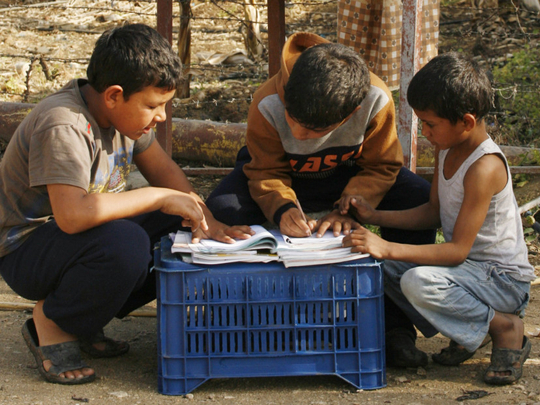
Beirut: An estimated 21 million children in the Middle East and North Africa are out of school or at risk of dropping out despite improved access to education in the region over the past decade, the United Nations said in a report released Wednesday.
Governments in the region, which includes 20 countries stretching from Morocco to Iraq, have invested in education in the past 10 years, which has helped push up enrollment rates, according to the UNESCO and UNICEF report. But progress has slowed in recent years in the face of conflict, poverty and discrimination.
“At a time of such change and turmoil, this region simply cannot afford to let 21 million children fall by the wayside,” said Maria Claivis, regional director for UNICEF. “These children must be given the opportunity to acquire the skills they need through education in order to play their part in the region’s transformation.”
More than 15 million children already are out of school in the region, while another 6 million are deemed at high risk of dropping out, the report said. Several factors contribute to the problem, including armed conflicts, gender discrimination, child labor, poor education standards and poverty.
The wars in Syria and Iraq, two countries that used to have high rates of enrollment, have had a particularly devastating impact on schooling. In those countries alone, some three million children are out of school because of conflict.
Escalating violence in Yemen and Libya is expected to have a similarly damaging effect on education.
“As the violence expands, millions more are at risk of becoming a ‘lost generation’ deprived of the knowledge and skills needed to be successful adults,” the agencies said in a statement.
Girls are 25 percent less likely to go to school in the region, but once they are enrolled they are less likely to drop out, the report said. Children who enter school late are at greater risk of dropping out than children who start at the appropriate age.
The UN agencies urged governments to ramp up efforts to provide education for disadvantaged families, particularly the rural poor.











